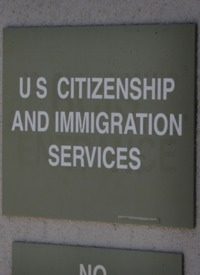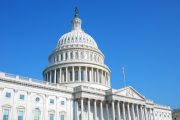
Last month, The New American chronicled President Barack Obama’s presumed intention to circumvent the legislative process and issue an executive order, a fiat altering the immigration status of the millions of illegals that have invaded the nation over the past decade.
At the time of the writing of the prior article, it was conjectured that the order would grant some level of work and residency rights to the millions of illegal aliens now living in the United States until such time as the requisite number (60) of Senators could be cajoled, charmed, bullied, or bought into acceding to President Obama’s vision of giving every illegal a "Get Out of Deportation Free" card as part of some grander “Comprehensive Immigration Reform” package.
Comprehensive Immigration Reform is the mantra of rajah Obama and his congregation of fawning acolytes. Barack Obama has preached the message of amnesty by this and other names, including “pathway to citizenship.” No matter the euphemism conjured up by the President to avoid utterance of the word amnesty, foes of any such project equate it with rewarding willful disobedience of the law.
While Congress bobs and weaves around the potential populist punch that would knock them out of office if they were to take any controversial stance on immigration this close to mid-term elections, the Obama administration is working the kinks out of another combination designed to put those fighting illegal immigration on the mat for good.
The latest tactic being employed in the amnesty strategy is outlined in a U.S. Citizenship and Immigration Services (USCIS) memo penned by unnamed agency staffers and addressed to the director, Alejandro Mayorkas.
According to the information contained in the memo, which USCIS officials insist is merely a “deliberation and exchange of ideas” and nothing to be taken as a policy proposal, the agency has catalogued the various options that are open to the President should Congress fail to get on board the freedom train.
“In the absence of Comprehensive Immigration Reform, USCIS can extend benefits and/or protections to many individuals and groups by issuing new guidance and regulations, exercising discretion with regard to parole-in-place, deferred action and the issuance of Notices to Appear (NTA), and adopting significant process improvements,” the memo reads.
The phrase “deferred action” was used in the President’s reported executive order blueprint, as well. Basically, when a bureaucrat combines his extraordinary discretion on the invocation of “deferred action” with the milky vagueness of “significant process improvement” you get a magic potion that erases the names of potential deportees who are sent back to their American homes after their scheduled deportation hearing has miraculously disappeared from the docket of the immigration court.
The text of the memo asserts that USCIS’s discretionary power to use deferred action is unlimited. It does admit, however, that the unrestrained use of this power would be “controversial, not to mention expensive.” In order to suppress opposition to the flexing of this muscle, the USCIS staffers who wrote the memo suggest that deferred action be used to exempt “particular groups” from being subject to removal proceedings, particularly high-school students who are illegally present in the United States. According to recently published figures, there are as many as 65,000 illegal aliens attending American high schools.
Heretofore, advocates of amnesty have avoided using that word as it is a poison pill and sickens many who might otherwise joyfully swallow the plan under another name. In this newly obtained memo, however, the authors violate the protocol of perfidy and at one point, they explicitly admit that "deferred action" — or using prosecutorial discretion not to deport someone — would be "a non-legislative version of ‘amnesty.’ "
Invoking a brand of plausible deniability, the recipient of the memo, Director Mayorkas, testified to Congress in May, “I don’t know of any plans. I think we have discussed, as we always do, the tools available to us and whether the deployment of any of those tools could achieve a more fair and efficient use or application of the immigration law.” Assuming he read the memorandum, he is now better informed as to his boss’s plan to call the end run around the Representatives of the people and lead the flock of illegals to amnesty by hook or by crook.
The memo carves out deportation exemptions for other groups, as well. For example, removal hearings against “unaccompanied minors” and “victims of human trafficking, domestic violence, and other criminal activities” are to be put on hold while newer, amnesty-friendly regulations can be formulated.
There is also a proposal for extending the “grace period” H-1B visa holders have between the expiration of their visa and the date upon which they are required to voluntarily leave the country.
The memo sets out several other more alterations to existing federal immigration law and procedure. All of which are designed to familiarize bureaucrats with the doomsday scenario checklist for granting amnesty to millions of aliens.
For its part, USCIS downplays the significance of the memo’s suggestions. In a letter addressing the matter, a USCIS spokesman wrote:
Internal draft memos do not and should not be equated with official action or policy of the Department. We will not comment on notional, pre-decisional memos. As a matter of good government, U.S. Citizenship and Immigration Services (USCIS) will discuss just about every issue that comes within the purview of the immigration system. We continue to maintain that comprehensive bipartisan legislation, coupled with smart, effective enforcement, is the only solution to our nation’s immigration challenges. ??Internal memoranda help us do the thinking that leads to important changes; some of them are adopted and others are rejected. Our goal is to implement policies wisely and well to strengthen all aspects of our mission. The choices we have made so far have strengthened both the enforcement and services sides of USCIS — nobody should mistake deliberation and exchange of ideas for final decisions. To be clear, DHS will not grant deferred action or humanitarian parole to the nation’s entire illegal immigrant population.
Final decision or not, in light of the executive order possibility and this newest memorandum, the Obama administration seems determined to map every bend in every avenue that leads to amnesty, taking care to steer clear of legislative roadblocks and procedural potholes.
Photo: AP Images



